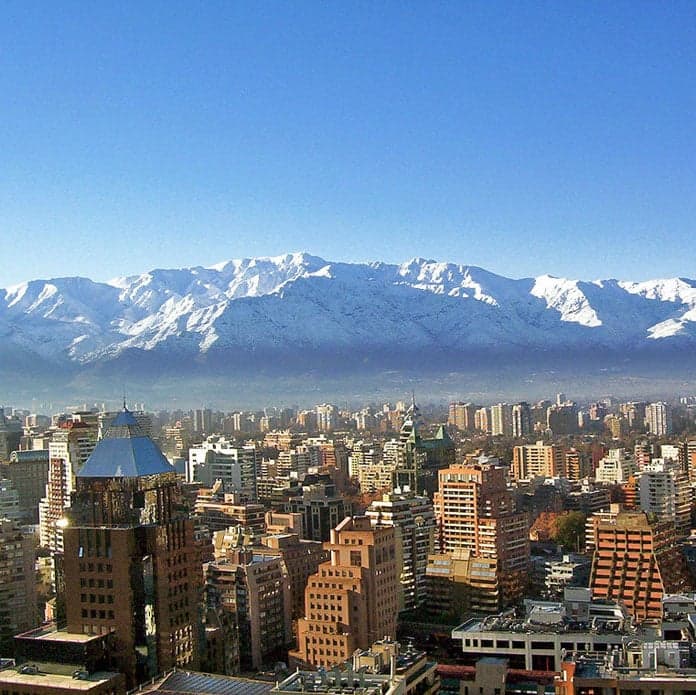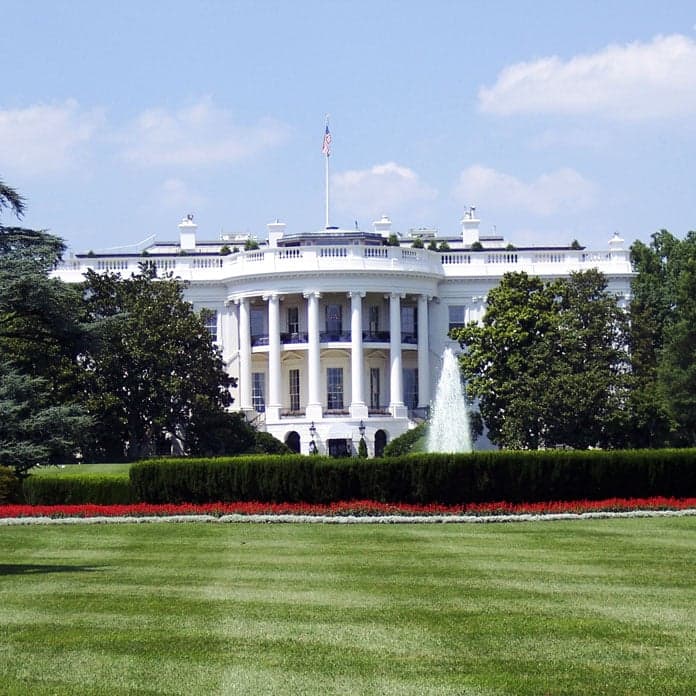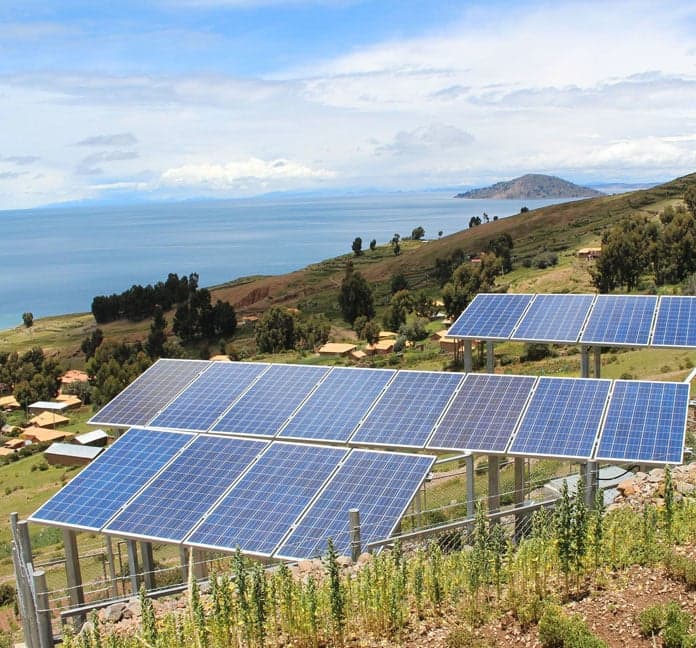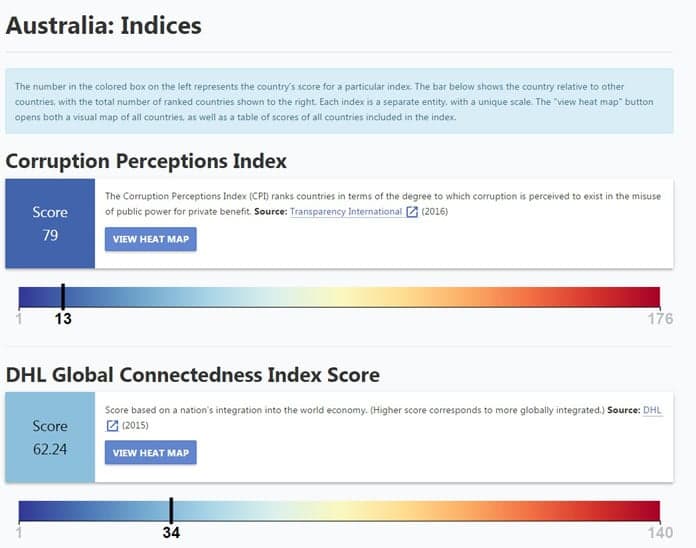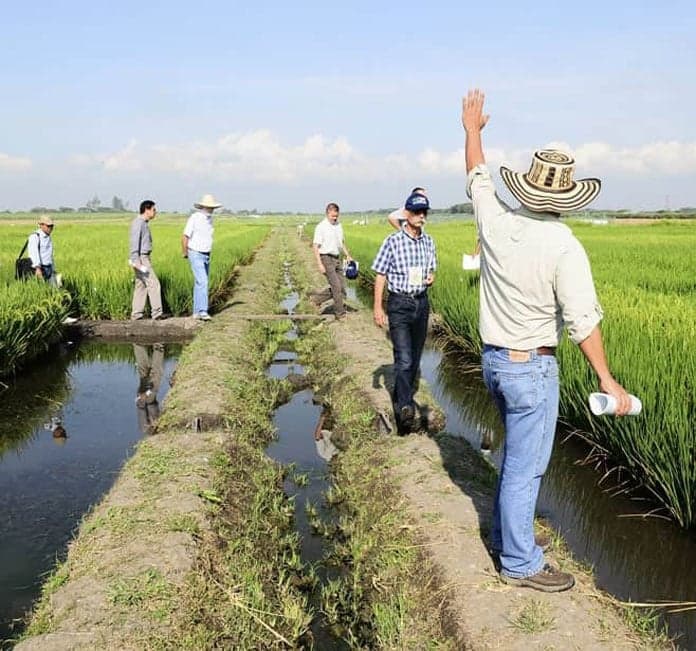The U.S. retail industry has been experiencing a changing landscape in recent years due to the closing of numerous big-name, brick-and-mortar stores throughout the country. Major apparel retailers such as Sears, Kmart, Macy’s, and J.C. Penney announced the closures of several stores this year while BCBG Max Azria, American Apparel, Payless Inc., and Gymboree have all filed for bankruptcy. Earlier, this month, a Credit Suisse report predicted that 20 to 25% of U.S. shopping malls will close down in the next five years, and 8,640 stores will close by the end of the year.
globalEDGE Blog - By Author: Meagan Flynn
Publish Date:
globalEDGE is currently at the Global Internship Conference in Santiago, Chile! This year, all of the conference’s plenaries, sessions, and workshops are being presented in both English and Spanish. Some of the sessions being hosted at the conference include:
- Using Multimedia in Internship Courses
- Creating and Sustaining a Global Internship Partnership
- Refining the Internship for Academic Credit in Study Abroad
- Creating and Managing Effective Collaborations
- Developing Global Leaders: Experiential Training for Student Interns
- Exploring Mentorship as a Means of Supporting Student Interns
Our own Assistant Director, Sarah Singer, will be representing MSU-CIBER by giving a presentation on globalEDGE today. To learn more about the Global Internship Conference and its variety of session offerings, click here.
Publish Date:
A new video published by Dr Jagdish N. Sheth from Emory University discusses the economic factors that caused many United States citizens to vote for Donald Trump in the 2016 presidential election. 25 years ago, world leaders decided to create the G7 and G8 agreements to liberalize trade as a growth engine. As a result, general tariffs were abolished, the World Trade Organization (WTO) was created, and trade increased across borders. NAFTA and the European Union were also created, but in the process, jobs began to shift.
Publish Date:
On Wednesday, the International Renewable Energy Agency (IRENA) released a report detailing trends in the renewable energy job market. Worldwide, renewable energy employed 9.8 million people last year, which is nearly twice as many compared to 2012. Wind jobs specifically grew by 28%. As global leaders, Brazil, China, Germany, India, Japan, and the United States have the highest number of renewable jobs. Global energy job growth has slowed down in recent years following solar energy declines in Japan and Europe, but IRENA Director-General, Adnan Amin, predicted that by 2030, employment will triple to 24 million.
Publish Date:
The globalEDGE team is excited to share the new Business Hindi Resource Guide. The project, funded by a grant from the MSU International Business Center (MSU-CIBER), was developed by the MSU Center for Language Teaching Advancement (CeLTA) to provide students applying for jobs and internships in India with necessary cultural and linguistic tools. The guide contains seven modules, covering topics such as socio-cultural etiquette, conversations in socio-business situations, business culture etiquette, and reading and interpreting job announcements. The resource guide also includes sample resume formats, sample cover letters, and a glossary of Hindi business terms. Click here to read the guide.
Publish Date:
On Thursday, the U.S. Department of Commerce announced that China and the United States had signed a new trade agreement, named the U.S.-China Comprehensive Economic Dialogue. The trade agreement is a result of ongoing negotiations between the two countries following a meeting between U.S. President Trump and Chinese President Xi Jinping in April. This 100-day action plan contains 10-points to be implemented by both China and the United States. For the United States, the agreement is part of an ongoing attempt to cut the trade deficit with Beijing.
Publish Date:
Part three of our transport manufacturing blog series examines recent trends in the global film industry.
In recent years, the global film industry has undergone major changes due to increased globalization and the overall growth of the middle class. In the past, two-thirds of box office revenue was generated by the United States alone, but this is no longer the case. Today, 70% of this revenue is generated outside of the U.S., and this is leading to major changes in the way that films are produced and distributed around the world.
Publish Date:
According to Kai-Fu Lee, the founder of venture capital firm Sinovation Ventures, robots are likely to replace 50% of all jobs in the next decades. Lee expects this to be the next revolution in the technology industry, even bigger than electricity, the industrial revolution, or internet. Lee has previously held high executive positions with companies including Google, Apple, and Microsoft. When asked if humans will still have a role in the world with machines growing more intelligent, Lee responded that nothing can replace person-to-person social interactions, meaning there is hope for the service industry. Still, artificial intelligence (AI) has been impacting and will continue to impact all aspects of life as we know it.
Publish Date:
In the last blog of this week's series, we take a look at the airplane manufacturing industry.
2017 has proved to be a successful year for airplane manufacturing so far. The industry experienced a surge in aircraft orders in February, putting it on track for a record year of directories. In the United Kingdom, in particular, the number of commercial aircraft ordered by airlines jumped to 43 last month from just 4 in February of the previous year, according to the Aerospace, Defence, Security & Space Group. These figures are based on orders from Airbus, Boeing, Bombardier (Canada), Comac (China), and Irkut (Russia).
Publish Date:
On Saturday, March 25, 2017, MSU will host its 10th World Languages Day sponsored by CIBER. World Languages Day is a free, all-day conference for high school students, teachers, and parents. Each year, this event brings over 500 participants, presenters, and volunteers to campus to learn about language, culture, globalization, and general information about MSU. Participants choose from 75-85 sessions taught by MSU faculty, graduate students, and community members on a variety of topics such as:
- A taste of Thailand: Spices, sayings, and script
- Skål! Learn to celebrate like a true Viking
- The power of yoga
- Around the French-speaking world in 50 minutes
- And many more!
Learn more about World Languages Day and its variety of session offerings here.
Publish Date:
Are you interested in seeing how countries compare based on corruption, global connectedness, ease of doing business, and other key indicators? Our newly updated country indices pages will allow you to do just that. Each country’s page lists a number of indices that display its score for a given index and its ranking relative to other countries. By clicking "View Heat Map", you can also see how countries compare on a visual heat map and table of scores. Check out Australia's page to see the updates made to the design and indices data!
Publish Date:
There are a wide variety of successes and shortcomings currently taking place within the Latin American agriculture industry. President Michel Temer of Brazil and President Mauricio Macri of Argentina met last week to discuss the status of sugar in the Mercosur trade bloc. Mercosur includes countries such as Uruguay, Paraguay, and Venezuela, and currently, sugar is not included on the list of goods that are subject to free trade in the trade bloc. Farmers in Argentina fear that if current levies are withdrawn, there will be a downpour of cheaper Brazilian sugar into the country. Brazil is the world’s largest producer and exporter of sugar due to its favorable conditions for cane cultivation, which gives Argentina a good reason to be concerned. However, Agriculture Minister Blairo Maggi stated that Brazil would try to include sugar in the negotiations between Mercosur and the European Union. Read more about current events in Latin America’s agriculture giants below.
Publish Date:
On Thursday, United Kingdom consumer goods company Reckitt Benckiser placed a bid on Asian firm Mead Johnson for $16.7 billion. Mead Johnson is well known for producing various consumer products, including baby formula, a product with sales of $41 billion in 2014. Asia is currently the fastest-growing market for this product due to the repeal of China’s one-child policy in 2015. Couples can now have two children, after only one was permitted throughout the 36 year long rule. As a result, the birth rate last year was China’s highest in the past century, with the number of newborns rising by 7.9%, or 17.86 million.
Publish Date:
2017 will be an exciting year for the hospitality industry. In terms of booking methods, hotel design, and even locations, there will be many changes that impact the hotel portion of the hospitality industry. In no particular order, we have listed ten trends that 2017 will bring below.
Publish Date:
According to Eurostat, Eurozone inflation hit 1.1% last month, which is a sharp increase compared to November’s rate of 0.6% It is believed that this jump can be attributed to increased costs of energy, food, alcohol, and tobacco. This inflation rate is the highest that the Eurozone has seen in over three years; in September 2013, the rate was also 1.1%.
Publish Date:
On December 15, the Japanese Diet passed a law to legalize casinos in the country, opening way for projects combining gambling with hotels, shopping, and conference spaces. The first proposal for this law was submitted in 2013, and again last year. While Prime Minister Shinzo Abe and his ruling party support the bill, claiming that casinos will stimulate the Japanese economy and increase tourism, opposition parties are critical. This bill had failed repeatedly in previous parliaments to come up for a vote due to concerns regarding gambling addiction and money laundering.
Publish Date:
The Business Language Syllabi section of globalEDGE provides a number of language course syllabi focused on the business vocabulary for a given language. Syllabi are provided by a variety of community colleges and universities, and include languages such as Arabic, Chinese, English, French, German, Russian, and Spanish. Take a look at this section if you are looking to further develop your business language course! Other International Business syllabi can be found on globalEDGE in the Course Syllabi and Community College Course Syllabi sections.
Publish Date:
In North America, there are currently two very contradicting states between the Central Banks of Canada and the Federal Reserve of the United States. According to a senior central bank official, the Bank of Canada will not respond mechanically to any future move by the U.S. Federal Reserve to raise interest rates. Deputy Governor Timothy Lane spoke to an audience in Waterloo, Ontario and stated that “tighter monetary policy in the U.S. would lead to higher market interest rates globally, producing a tightening effect for Canada.”
Publish Date:
While globalization itself is not reversing, according to the Financial Times, it has “definitely lost its dynamism”. In September, trade was interrupted between Asia and the U.S. after South Korean shipping line, Hanjin, filed for bankruptcy. As a result, the company left several dozen of its cargo ships at sea. While it is not being noticed by most people, trade is no longer rising across the globe. Statisticians in the Netherlands found that the volume of global trade was flat in the first quarter, then fell by 0.8% in the second quarter. The total value of U.S. exports and imports fell by over $200 billion last year. So far this year, the amount of trade has fallen by an additional $470 billion. There are a variety of opinions on why the amount of global trade has fallen, but the International Monetary Fund concluded that is it due to the synchronized economic slowdown in both advanced and emerging markets.
Publish Date:
Consumers today have more options for buying than ever, which can sometimes lead to information overload and increased insecurity. As a result, consumers are seeking out a brand with the values, quality, and authenticity they can remain loyal to. According to CNBC, there are seven important keys to help build a strong brand:
Publish Date:
Disruptions in supply chains are unwanted, but can sometimes be unavoidable. New technology introduced to logistics functions has helped to lessen these disruptions, increase efficiency and responsiveness, and also meet the ever-growing expectations of customers. Since the affordability of these technologies has also increased, they are becoming more and more available to companies wishing to improve their logistics functions. Experts anticipate that over the next few years, the Transportation Management System (TMS) will become more heavily used, autonomous vehicles and drones will increase, and the use of robots will also increase.
Publish Date:
Just four years ago, the Mongolian economy grew by 17% and attracted billions of dollars in foreign investment, according to World Bank data. Today, there is a mounting debt crisis and the risk of a possible default from the Mongolian government, with GDP only growing about 1.3% for the first half of the year. Currency has also plummeted nearly 10% against the dollar in the past month alone, and concern continues to grow as more investors pull their funding from the country.
Publish Date:
Afghanistan may not seem like the ideal location for business opportunities. The country faces frequent blackouts, bombings, equipment shortages, and a consumer market that is untested. Despite these challenges, three Army veterans and a civilian who served in Afghanistan have decided to take on these challenges through their company, Rumi Spice.
Publish Date:
The Trans-Pacific Partnership (TPP) has been a largely controversial topic from the day discussions began. As the largest regional trade agreement in history, the agreement would set new terms for trade and business between the U.S., Canada, Mexico, Australia, and numerous other Pacific Rim countries. As a whole, this group of member countries is responsible for nearly one-third of world trade. Needing the approval of Congress, the TPP has become a topic of discussion in the 2016 U.S. presidential election. While the nominees of both major parties are both against the agreement currently, there are a number of reasons why dropping the partnership all together may not be the best idea.
Publish Date:
Chevron and partners in the Tengiz oil field in Kazakhstan will help to increase crude oil production in the field by about 260,000 barrels per day with the development of its Future Growth and Wellhead Pressure Management Project. This expansion is estimated to cost $36.8 billion but will increase the field’s total daily production to about 1 million barrels. Multiple companies own portions of this oil field: Tengizchevroil is 50% owned by Chevron and owns and operates the Tengiz field. However, another 25% is owned by Exxon Mobil Corp, 20% by Kazakhstan’s state-owned energy company, KazMunayGas, and the final 5% is owned by a subsidiary of Russia’s Lukoil.
Publish Date:
As the popularity of online shopping grows in India, China, Japan, and South Korea, e-commerce companies are predicted to spend about $6 to $8 billion in investments toward logistics, infrastructure, and warehousing over the next few years. E-commerce as a whole is growing exponentially, with the retail industry being the main contributor. The need for air cargo connectivity is expected to increase as tier two and tier three cities pick up business and the supply chain becomes more complex. Specific retail companies are also working to ensure that they can account for the highest amount of revenue in terms of e-commerce.
Publish Date:
There are many reasons that entrepreneurs choose to move their businesses across the world. Whether it be cost savings, favorable market conditions, geographic advantage, risk diversification, or competiveness, doing business in locations across the globe can prove to be extremely beneficial. Ultimately, this decision depends greatly on the specific needs of a business, which can sometimes be volatile. Here are five locations that are currently favorable for those looking to move their business abroad.
Publish Date:
Three years ago, popular global brands such as H&M, Walmart, and Gap pledged to improve safety conditions in factories overseas following a multitude of deaths due to poor labor conditions. Despite the time frame, many human rights groups believe that these promises have not been kept, and more progress is needed. Safety in working environments in Bangladesh remains poor, while global retailers continue to reap the benefits of a less expensive work force.
Publish Date:
The International Monetary Fund recently released a report detailing how much corruption impacts governments worldwide. This report, titled “Corruption: Costs and Mitigating Strategies”, follows Managing Director Christine Lagarde’s warning to Ukraine in February that the IMF would halt its bailout unless stronger action to fight against corruption occurred. According to the report, corruption in the public services sector takes out an estimated $1.5 to 2 trillion each year from the global economy due to stunted bribes and costs, lost tax revenue, and sustained poverty.
Publish Date:
Warehouses are becoming increasingly more complex according to a report by Zebra Technologies, a company which sells bar code scanners and other technologies. These products allow companies to track and manage their business operations in an efficient manner. In its most simple terms, warehousing is the process of storing materials and filling orders from one end of the supply chain to the other. In response to the growing needs of e-commerce, major changes in labor and technology will be occurring within these warehouses. According to the report, in 2015, it took 60.4 hours to train new staff to “full productivity”, up 26% from 2013. This figure just further demonstrates that companies are already adjusting their supply chains to meet demand for faster delivery by consumers.
Publish Date:
In a statement recently released by the Angolan Finance Ministry, the government stated that it would begin working with the International Monetary Fund (IMF) to help restore the economy after recent difficulties due to the major decline in oil prices. Specific discussions are expected to begin next week during the IMF and World Bank spring meetings in Washington. Angola’s economy relies heavily on oil, which accounts for more than 95% of the country’s export earnings and two-thirds of government revenue. As a result of crude oil prices currently being valued at less than half of the level it reached in mid-2014, Angola and other oil-dominating countries, such as Nigeria, Egypt, and Libya, are struggling to stay afloat economically.
Publish Date:
The expansion of the Panama Canal has overcome labor disputes, legal battles, and even technical issues, but the project is almost complete. When projects such as these occur on such a massive scale, big delays and budget overruns are inevitable, but usually the financial backers can always find the money to complete the projects. However, this may not be the case for the Nicaragua Canal. This canal is being built in order to allow large Post-Panamax ships to travel as the Panama Canal’s current locks are not big enough. Nicaraguan officials also believe that the investment will boost the economy and living standards. The canal would be one of the largest infrastructure projects in human history, but many are skeptical as no evidence of actual construction has been found since August 2015, despite the Nicaraguan government insisting that ground was being broken.
Publish Date:
Since President John F. Kennedy signed the Presidential Proclamation 3447 on February 3, 1962, the United States has not been able to invest or do business with Cuba, as an “embargo on all trade” was declared. However, within the past two years, major changes have been made to reopen business opportunities between the U.S. and Cuba. In December 2014, President Obama met with Raul Castro and made the controversial decision to restore diplomatic relations with Cuba. More recently, in July last year, both countries reopened their embassies and U.S. companies such as Verizon, Netflix, and Airbnb have expanded into the Cuban market. Many believe that now is the ideal time to start doing business with Cuba; however, there are also a wide variety of potential issues that could complicate future transactions.
Publish Date:
In Freilassing, Germany, the traffic along one of Europe’s most busy expressways backs up many miles due to a newly installed checkpoint, where German police screen vehicles for hidden migrants. The traffic used to flow unaffected, but now, Austrians who work in Germany are having a harder time than ever simply traveling to their workplaces. Companies in Germany also must wait days longer to receive food and other goods deliveries. In addition, shoppers no longer travel across the borders because it has become too much of a hassle. These border controls are already causing a negative economic effect on all European countries involved, and this could only become worse as more border checks are implemented.
Publish Date:
The globalEDGE team is excited to introduce our newly redesigned country risk pages. Each country risk page can be accessed individually for via the Country Insights menu. These new pages now allow users to not only see both the country risk and business climate risk for each country, but also compare that risk rating to other countries around the globe using an interactive map, color-coded by risk rating. Users can also read about each country’s strengths and weaknesses which contribute to the risk, as well as current economic and financial trends occurring in the country. Check out these new pages to learn about country risk and business climate today!
Publish Date:
The main focus of the recently launched ASEAN Economic Community (AEC) is to create a single market and production base, support member nations in a world of increasing competitiveness, and to close economic disparities. Overall, the underlying aim is to further integrate Asian economies with the global economy. Germany has expressed interest in the AEC, according to a survey conducted by Germany Invest. The survey found that German firms currently operating within ASEAN are excited by the new opportunities that the AEC might bring for their businesses. In the past, hesitance has prevented German firms from leading against competitors such as Japan, who has successfully been leveraging tariff removals and other benefits found in the region. The AEC will bring exciting new benefits and business opportunities to members in its region. However, despite the AEC appearing to be the next European Union, it has a long way to go in terms of integration.
Publish Date:
This Monday, the Central Statistics Office of India announced that the country’s economy had grown by 7.3% last quarter, making it one of the world’s fastest growing economies. Already the 3rd largest economy in the world, India outpaced China’s growth of 6.8% in the same period, and far surpassed its own growth rate of 6.6% in the same period last year. Although it may seem odd that India’s economy is growing faster than China’s, it has happened before. According to the International Monetary Fund, India’s economy outpaced China’s in 1981, 1989, 1990, and 1999, but 2015 is the first case of this occurring in this millennium. However, as stock prices have recently dipped and a new calculation of GDP has been utilized, economists and analysts are reluctant to believe that India’s GDP is the only piece of the puzzle.
Publish Date:
Last year, $735 billion flowed out of emerging markets, Compared to $111 billion in 2014, this situation has not occurred since the late 1980’s and could be bad news for emerging markets. With all of this capital flowing out of emerging markets, this means that the money is being used to buy assets elsewhere. Unfortunately, since emerging markets are still building up their roads, infrastructure, factories, and technology to improve their own economies, they are extremely reliant on investment from developed countries. With money being taken out of these countries to be invested elsewhere, emerging markets could face a tough year economically.
Publish Date:
China, the world’s second largest economy and a key market for many nations, began 2016 with a slowed economic pace, as the manufacturing industry contracted for the fifth month straight in December. This suggests that the government may have to implement new policies to prevent a potential slowdown. The services sector ended positively, but the economy as a whole is still on track to grow at its slowest pace in a quarter of a century.
Publish Date:
In recent years, the pharmaceutical industry has been faced with the message of “do more with less.” Companies in the industry are used to arguing with insurers over the coverage of a particular drug, searching for cures for seemingly untreatable diseases, or facing public backlash from the high prices of currently sold drugs. Overall, this underlying message is not expected to go away in 2016, and significant challenges are predicted ahead.
Publish Date:
Across Nigeria, low cost goods imported from China are rampant, further providing evidence of Beijing’s growing dominance in global trade. While the trade flow from China has helped to keep life affordable for some Nigerian families in times of economic stagnation and plunging prices, low quality and counterfeit products are becoming a major problem within the country. For example, dozens of fires each year can be connected to electrical wiring, outlets, and power strips from China found in the homes and offices of Nigerian citizens. Not only are poor quality items posing safety risks, but they are also taking away employment opportunities from workers in Nigeria.
Publish Date:
Earlier this year, we wrote about how the Brazilian e-commerce industry was growing rapidly despite a troubling economic state. This is due in part to the growth of an online payment system called EBANX. Partnered with local banks, this system allows Brazilians to make online purchases from international vendors. More than 60% of Brazilian citizens lack access to an international credit card, and before EBANX, this segment was unable to purchase from international e-commerce sites at all.
Publish Date:
Located in the Global Resource Directory, globalEDGE’s culture resources provide information about greetings, etiquette, and gestures in order to increase cultural understanding and cross-cultural communications. The information provided can be useful for a businessperson or casual traveler, and these resources contain information regarding the business culture of a wide variety of countries. This particular section also provides globalEDGE online course modules that cover the topics of culture, international negotiations, and world religions to prepare a businessperson to do business abroad.
Publish Date:
Expanding a company abroad can provide a number of advantages for a company. The sales life of products and services can be extended by finding new markets to sell them in, thereby reducing dependence on domestic markets. Additionally, there is an increased ability to even out sales by tapping into new markets that may have different fluctuations if your business is troubled by seasonal changes or fluctuating demand cycles in the native country. Still, many countries assume that these benefits will be guaranteed immediately following the entrance of their business, and overlook a number of important factors that could have benefited the business. Some common mistakes made when taking a company global are listed below.
Publish Date:
The globalEDGE team is excited to announce that we have successfully added new trade blocs, as well as redesigned the layout for many of the sections related to trade blocs. If you look at the Global Insights by Trade Bloc page, you will notice that there are 10 new trade blocs: ANCOM, APTA, the Arab League, CEFTA, EAC, EAEU, ECCAS, EFTA, OECS, and SAARC. By clicking on each individual bloc, you will also notice that we have redesigned the Introduction, History, Membership, Related Agreements, and Statistics pages. Users will now be able to gain an in-depth perspective of how much aggregated trade occurs because of these blocs, as well as how much each member country contributes to the bloc as a whole. Make sure to check out this new section today!
Publish Date:
According to figures released last Thursday, unemployment in Spain fell to its lowest level in four years. This figure could increase the chances for Prime Minister Mariano Rajoy to win the general election, as unemployment is currently a hot topic for discussion in the country. The rate fell from 22.4% in the previous quarter to 21.2%, bringing the number of people without work down to 4.85 million, which is the lowest it has been since mid-2011. At the peak of the economic crisis during this time, unemployment reached a record of nearly 27%.
Publish Date:
Following Indian Prime Minister Narendra Modi’s election in 2014, many had hoped that the leader would speed up market reforms in order to attract foreign capital and grow the economy. However, rampant political and social problems throughout the country have caused these reforms to materialize much more slowly than initially anticipated. Many are additionally uncertain on the state of India’s economy due to modest GDP growth and little manufacturing output. In order to combat these issues, Modi is now beginning to prioritize the modernization of India’s digital infrastructure. A digital revolution in the country could potentially boost education and consumption, and consequently contribute to economic growth.
Publish Date:
Mexican President Enrique Peña Nieto is now at the halfway point of his 6 year presidential term. On Wednesday, he delivered his third State of the Union address, during which he highlighted his plan to boost the Mexican economy. Although a number of measures and reforms were proposed, many Mexican citizens believe that the President’s reforms have not succeeded due to the corruption and economic uncertainties present throughout the country.
Publish Date:
Earlier this summer, the Millennium Challenge Corporation (MCC) announced a $70 million commitment to bring in one billion dollars in public-private investments for developing countries. This plan will take place over the next five years, and the grant money given to Africa is expected to generate $750 million in investments from the private sector. The MCC is heavily investing in the continent’s energy sector, and the ultimate goal is to reduce poverty, increase economic growth, and attract more investors to countries such as Malawi, Benin, Lesotho, Liberia, Tanzania, Ghana, and Morocco. According to Kyeh Kim, the Deputy Vice-President of Compact Operations for the MCC, “these are countries that have a good track record in terms of good governance and democracy, have made strong efforts toward anti-corruption and are investing in their social sectors: education and health, as well as creating an enabling business environment through things like good fiscal policy, trade policy.”
Publish Date:
As far as regional trade agreements are concerned, the upcoming Trans-Pacific Partnership (TPP) is constantly being compared to the North American Free Trade Agreement (NAFTA). United States citizens in particular are concerned as to whether free trade is actually beneficial to the U.S. economy and its workers. When NAFTA entered into force in 1994, tariffs were cut and laws were changed in order to allow free trade between the U.S., Canada, and Mexico. While many proponents of the agreement believe that NAFTA has stimulated the economies of these countries, others believe that the framework for the agreement can serve as a warning of what could potentially go wrong with the TPP.
Publish Date:
At the end of the past decade, many millennials began to move in with their parents in order to save money throughout the recession and declining job market. Despite the belief that these young adults would move back to living independently once the economy improved, there are even more of them living at home than there were before according to a study by Pew Research Center. The national unemployment rate for young adults declined to 7.7% in the first four months of this year, compared to the 2010 figure of 12.4%. Despite this, the center analyzed recent census data and was able to find that 18 to 34-year-olds are less likely to be living apart from family members than they were even at the worst point of the recession, which was the worst economic downturn since the 1930’s.
Publish Date:
Earlier this month, United Kingdom Chancellor George Osbourne declared that there would be a new legal living wage of £7.20 per hour. Employers are required to pay this amount starting in April of 2016 to employees aged 25 or older, and this rate is expected to rise to £9 per hour by 2020. The existing minimum wage for those over 21 is £6.50 an hour. Although the U.K. government predicts that around 2.7 million low wage workers could benefit from the change, many organizations and citizens throughout the country are fiercely opposing the soon-to-be implemented measure.
Publish Date:
Our state trade statistics pages have undergone a redesign and the new pages are now available on globalEDGE! These pages can be accessed individually for each state via the Global Insights menu. These new pages highlight important trade figures and data for all the states, and help compare trade volumes between states. Specifically, each state trade statistics page includes figures for total trade, top exporters, and top importers, as well as the most commonly imported and exported goods. The page also includes figures about the impact of trade on the various states’ economies. Be sure to check out these new pages to expand your global business knowledge!
Publish Date:
Many financial institutions are turning to social media as a way to attract and engage their customers. The Managing Director for TD Ameritrade, Nicole Sherrod, even works on the weekends to send tweets and interact with the firm's clients. She believes that as a result of her presence on social media, she now has "an even closer relationship with clients" and has been able to get to know them better. By posting on the weekends, she is able to show her activities after work hours and build a more personal relationship with the consumers. Twitter in particular is a useful tool to help financial service workers to navigate company guidance and industry regulations to share industry news, respond to questions from clients, and address other problems or concerns.
Publish Date:
This year, economists expect that Brazil’s economy will shrink by 1% in real terms and by as much as 15% in dollars due to maxed out credit cards, rising inflation, and government increases on prices for fuel, electricity, and transportation. In the last year, consumer spending has stagnated and could even decline by 3% in 2015. However, the Brazilian e-commerce industry seems to be excelling despite all of these indicators. Price savings and the convenience of online shopping caused Brazilians to spend $30 billion online last year, which marks an increase of 9% since 2013.
Publish Date:
In recent years, scientists have noted the impacts of climate change on crops worldwide. As a result of rising temperatures and widespread drought, coffee crops in Vietnam are suffering. In Pakistan, the recent periods of intense rains and hailstorms have reduced the yields of wheat nationwide. Although there are many measures being taken to prevent further climate change, such as major corporations reducing their carbon dioxide output, global economic expansion is exacerbating the effects of climate change and is actually harming some industries.
Publish Date:
The “Internet of Things”, or IoT, is defined as the concept of connecting a variety of household devices to the internet. This global IoT market, according to research firm International Data Corp (IDC), is expected to grow from $655.8 billion in 2014 to $1.7 trillion by 2020, an annually compounded growth rate of 16.9%. Growth is likely to be a result of more devices coming online, the growth of platforms and services based around these devices, and declining costs of sensors, connectivity, and data processing power.
Publish Date:
Despite low unemployment, the United Kingdom is currently faced with extremely low levels of productivity. As a country, the U.K. produces 30% less per hour than its counterparts in France and Germany while working on average more hours. The problem is deep-seeded and dates back to almost 1991. And although productivity was not high on the agenda during election season, Chancellor George Osbourne has stated that addressing the root causes is now a priority for Parliament.
Publish Date:
Three-quarters of France’s electricity comes from nuclear power, which is a higher proportion than any other country in the world. In France alone, 220,000 people are hired to work in the energy industry. Because of this, French nuclear companies have been seen as leaders at the forefront of developing and operating uranium fueled reactors around the world. But recently, it was discovered that new power plants intended to showcase the energy industry’s latest technology are now extremely behind schedule and over budget. Problems at one site have raised doubts that it will even be completed.
Publish Date:
Since last year, the rupiah has lost 10% of its value against the dollar. This is a serious matter following the Indonesian government, despite the fact that the country is currently welcoming delegations to the World Economic Forum. President Joko Widodo has promised stronger economic growth for the country, and has implemented measures to combat the currency decline. The Indonesian government hopes that by lifting visa fees for tourists and changing tax regulations, the value of the rupiah may rise again.
Publish Date:
Compared to figures taken in 2014, the Eurozone’s trade surplus was much wider this January. According to the EU statistics agency, on March 18, the 19 countries that use the euro had a surplus in their trade with goods with the rest of the world of 7.9 billion euros, or $8.38 billion, which is up 100 euros from January 2014. This widening gap was said to be due to a 6% decline in imports, which likely reflects the drop in oil prices. During this time, experts noted that overall exports increased, but at a very slow rate.
Publish Date:
In February, the inflation rate in the United Kingdom fell to 0%. This is the lowest rate since records of inflation were first taken in 1960. Official figures demonstrate that lower prices of transportation, food, and computer goods helped to cut the rate back from January’s inflation rate of 0.3%. Although these figures are good indicators in some ways, they can also impact the interest rates set by the Monetary Policy Committee, which is considering raising the rates from their record low of 0.5%.
Publish Date:
On Monday, March 9, Ghana and the International Monetary Fund made a deal to help stabilize the country’s struggling economy. The three-year plan was proposed after discussion of the government’s failure in reach targets for inflation, the budget deficit, and overall GDP growth. Members of the minority opposition “New Patriotic Party” believe that Ghana’s current economic state is the worst it’s been in over two decades.
Publish Date:
On February 19, the German government rejected Greece’s request for a 6 month extension to its Eurozone program. Germany had hoped that Greece would renew its existing deal that contains harsh austerity conditions, and a German Finance Ministry spokesman claimed that the proposed assistance package was “not a substantial proposal for a solution”. The Finance Minister himself, Wolfgang Schaeuble, stressed that no new payment of funds would be given to Greece until a new deal was made. Despite the Greek economy growing in all four quarters last year, it has been in recession for almost 6 years and must take measures to improve the condition of its economy.
Publish Date:
Five years later, the devastation of the Haiti earthquake can still be felt throughout the country. Cities are densely packed and the construction of new buildings is progressing slowly after approximately $8 billion in damages were done to the city, leaving about 1.5 million people homeless. Although $9 billion was pledged in relief money, about 3 times Haiti’s annual budget, unemployment and corruption are still extremely common throughout the country. In order to continue the process of recovery, Haiti will need more than just philanthropic efforts. Improvements in the education system, business environment, and infrastructure through increased foreign direct investment and aid will play a key role in Haiti’s eventual economic revival.
Publish Date:
After falling into a shocking recession last year, Japan’s manufacturing industry shows signs of hope as growth was sustained in December. The Markit/JMMA purchasing manager’s index was measured at 52, and demonstrated the seventh consecutive month for manufacturing growth in Japan. As a matter of fact, this growth rate is the most rapid rate since May of last year, suggesting that Japan’s economy may not be in as terrible condition as previously thought.
Publish Date:
On December 17, President Obama announced that the United States would normalize relations with Cuba. Before relations are entirely healed, the US Treasury and other related agencies are required to complete certain business-related tasks. The Treasury Department Office of Foreign Assets Control, for example, will enact its treasury specific changes in the form of amendments to the Cuban Assets Control Regulations. The Department of Congress will additionally need to enact changes through amendments to Export Administration Regulations. However, these changes will improve the Cuban private sector as a whole and make it much less difficult for its citizens to access inexpensive goods while becoming more independent from Cuba.
Publish Date:
Last year on the eve of Cyber Monday, Amazon’s founder and CEO Jeff Bezos revealed the company’s plan to develop drones that would deliver packages to a customer’s doorstep. News of these drones spread quickly, and as a result Amazon broke its Cyber Monday record with a figure of about 426 items ordered per second. By utilizing the advertisement practice of embargoing, or holding the news about these drones until the ideal moment, Amazon was able to maximize its profit and increase sales just in time for the holiday shopping season.
Publish Date:
After nearly two decades of deflation, Japan unexpectedly has fallen into a recession in the third quarter of this year. In a preliminary economic report released by the Cabinet Office on November 17, GDP was reported as falling at an annualized pace of 1.6% in the third quarter of 2014. In combination with the previous quarter’s 7.3% decline, this GDP decline has caused Prime Minister Shinzo Abe to dissolve the parliament and call for snap elections two years before the next scheduled elections.
Publish Date:
Recently, an Indian activist named Kailash Satyarthi won the Nobel Peace Prize for his efforts to protect the rights of children in the global labor force. Satyarthi created a South Asian Coalition on Child Servitude which has battled child labor by raiding factories across India and liberating more than 40,000 bonded workers. He has also campaigned for increased legislature banning child labor and created a global campaign against the issue, made up of over 2,000 civil society organizations around the world. Despite Satyarthi’s efforts, child labor is still prevalent in many poor countries, and laws that directly ban the practice can do more bad than good.
Publish Date:
Last week, Prime Minister Mariano Rajoy visited Beijing, China to help gain economic support for Spain. Rajoy met with the President Xi Jinping and Premier Li Keqiang to help facilitate the signing of 14 contracts, totaling about 3 billion euros ($3.8 billion). A crowd of Spanish and Chinese businesspeople were in attendance as Rajoy encouraged China to invest in Spain after its recovery from the Eurozone crisis.
Publish Date:
In 2013, global meat production reached its highest level at 308.5 million tons, a 1.4% increase from the prior year. Due to a number of factors such as growing purchasing power, urbanization, and changing diets, the WorldWatch Report has determined that meat production has increased more than fourfold since 1961. The report was accompanied by a press release titled “Peak Meat Production Strains Land and Water Resources”, which additionally stated that meat production has increased 25-fold in the last two centuries. Although this has positive side effects for those working in the meat industry, the implications for the environment could be detrimental.
Publish Date:
With recent disasters such as the March disappearance of flight MH370 and the July crash of flight MH17, the world is eager to see how Malaysia Airlines will recover. As an inevitable result of the disasters, the company has lost a substantial number of customers and money. Nonetheless, the airline as a whole had been losing money long before these disasters struck. Between 2011 and 2013, Malaysia Airlines lost 4.13 ringgit, the equivalent of $1.31 billion. With a fourth consecutive quarter loss predicted, Prime Minister Najib Razak is calling for major changes to take place within the company.
Publish Date:
Earlier this year, Japan implemented a sales tax increase from 5 to 8 percent. Bloomberg experts had predicted a median 7 percent decline, however, the economy declined by only 6.8%. And although an economic decline is never ideal, the contraction that has occurred in this quarter is much less impactful than in 1997, the last time the sales tax was hiked.
Publish Date:
News coverage shows the chaos currently engulfing the Gaza Strip. The Israeli bombardment has so far destroyed 50 factories that previously produced food, textiles, and other goods according to the Vice President of the Palestinian Federation of Industries, Ali Al-Hayek. In addition to the poor economic effects of these attacks, citizen’s homes have also been destroyed. During July’s fighting alone, at least 2,655 homes have been extremely or entirely damaged. Inevitably, Gaza will have to undergo massive reconstruction once the conflict resides, however there are major problems associated with cost and trade that could prevent it from doing so.
Publish Date:
Angela Merkel, the current chancellor of Germany, has been reigning over the country for 8 years. Her approval rating of 71% seems expected when you consider the 2014 estimated GDP growth in Germany. Compared to the Eurozone average of 0.25% Germany’s domestic demand and increase in construction have been great assets to the country’s economy. Despite her success as chancellor, some believe that she is not taking actions that will positively impact the long-term economy.
Publish Date:
Over the years, Vietnam has been consistently at battle with the United States over the trade of catfish. The country’s ability to export catfish for a lesser price has made them a top exporter and caused the domestic industry to contract by 60% in the last decade. With local catfish farmers losing money, a so called war was waged starting in 2008 with the introduction of a catfish inspection program by the U.S. Department of Agriculture. And although the program has yet to go into effect, numerous Pacific exporters are already protesting its introduction.
Publish Date:
Yesterday, our latest blog post examined the business effects of the new tuition reimbursement plan of Starbucks at a macro-level. Today, we will cover the plan in more detail to learn how it could affect workers on an individual level. In attempts to decrease employee turnover, many large companies are seeking new retention strategies. Starbucks is using an education incentive to achieve this goal. Its new “Starbucks College Achievement Plan” will help qualified workers pay their full tuition for online courses taken through Arizona State University. And although the program has impressive benefits, some critics believe that it will not help workers as much as it promises.
Publish Date:
In India, electricity is not a commodity that is taken for granted by consumers. Power is so valuable to Indian citizens that inspectors from electricity companies have been brutally attacked so that they would not have to pay power bills. In addition to these attacks, some have even tampered with meters to lower readings just to dodge payments. The problem is so prevalent in India that Bloomberg estimates an annual loss of $17 billion in revenue due to electricity theft alone.
Publish Date:
For the first fiscal quarter of 2014, Canada will outpace the U.S. in GDP growth. Although the U.S. markets picked up after a rough winter, GDP growth is still set to decline by 0.5% according to the Globe and Mail. Meanwhile, Canada saw GDP growth of 1.7% in the first quarter, and although this is down from 2.9% in the previous quarter, GDP growth is still healthier than that of the U.S.
Publish Date:
Post graduation, previous students have to make a decision. Should they continue to educate themselves and receive a higher degree in order to make more money upon entering the workforce? Some select this option; however, in recent years the number of students immediately planning to do the opposite has increased, particularly in China. In regards to Chinese Business School grads alone, 76% plan on beginning their job search promptly after graduating.
Publish Date:
A disgruntled employee can have catastrophic effects upon the work environment of a company. Although it may begin with one person being unmotivated to complete their daily work tasks, his or her negative energy can impact other coworkers. One employee's unproductive mannerisms can also cause management resources to be diverted away from employees who consistently work hard and accomplish all tasks. In the long-run, this behavior is helpful to neither the employee nor company, as the company accomplishes less and the employee feels unsatisfied with his or her work. However, new human resources programs are being created to combat this issue in an innovative way.
Publish Date:
Japanese consumers rushed to local retailers on March 31 to purchase large numbers of goods. Even online retailers, such as “Aksul”, had their systems overloaded by the high volumes of transactions of basic goods such as toilet paper and instant rice. Why were the Japanese people in such a hurry to purchase these products? This is due to the sales tax hike from 5 to 8 percent, which was implemented the day after, April 1.
Publish Date:
For those of us who drive, we are well aware of how unavoidable major traffic can be. While en route to work or on a road trip, it can be a nuisance to have your estimated time of arrival continually pushed back. But can you imagine consistently attempting to travel somewhere, while living in a city with congested roadways? In Dubai, this is a daily reality. As an affluent city in the United Arab Emirates, the number of cars has grown so much that traffic is a rising issue for the country. Orthodox methods to combating the problem such as increasing prices of parking, fuel, and insurance have proved fruitless so government leaders are seeking a new strategy: putting in place an income threshold for the ownership of vehicles.
Publish Date:
Corporate style management is set to replace the current bureaucratic system of the Holy See in the near future. On the 24th of February, the Pope announced in a public statement that he is planning to make changes to its financial system by centralizing budgetary and administrative functions. As the first economic overhaul to the Vatican in over 25 years, it was decided that the Holy See will begin to operate with a system of corporate governance.
Publish Date:
Many emerging markets have noted the rapid devaluation of their currencies taking place over the past year. In Colombia, the peso is now worth 2,017.01 per U.S. dollar, the weakest currency level since 2009. While other emerging markets such as South Africa and Turkey are fighting incessantly to combat currency declines by raising interest rates, Colombia is taking a different approach by fully embracing the decline of its currency.
Publish Date:
The French unemployment rate has hit a record high, currently standing at about 11.1% for 2013. In December alone, about 10,200 people listed themselves as jobless. This 0.3% is only a fraction of the 3.3 million who registered as out of work for the entire year, a figure that has never been higher. Additionally, increases in unemployment have been observed across all sectors and also take part-time workers into account. The 5.7% rise in unemployment is unfortunate news for French President Francois Hollande who had previously promised that joblessness would fall by the end of 2013.
Publish Date:
With the recent December announcement of music streaming service Spotify launching a free and ad-supported version for mobile device users, it is inevitable that the music industry will begin to see some changes in the near future. In recent years, the revenue accumulated from the purchase of physical music albums has decreased rapidly, but its competitor of digital downloads is also being impacted negatively with the rising popularity of music streaming. As a consequence of this, US digital track sales decreased for the first time ever last year.
Publish Date:
After a 4 day meeting in Beijing, party leaders agreed to make changes to the infamous one-child policy in China. This previous policy allowed one child to be born into each family unless both parents were only children, in which case they may have another child. Additionally, couples in rural areas were allowed to have a second child provided that their first was a girl. Although theoretically this law was implemented to combat poverty by decreasing the total amount of births, the result instead was a long-term imbalance of genders and a capped labor force. Consequently, the Chinese government has altered the policy to ensure continual manufacturing growth in the coming years.
Publish Date:
In a world with a clearly-defined gap between developed, larger countries and small countries categorized by political turmoil and radical militant groups, it is difficult to recognize the growth of peace and stability. United States based companies often view currently developing countries as risks due to economic instability. Nevertheless, these low-to-middle income countries are increasingly becoming more stable and present the potential to be beneficial business associates.
Publish Date:
Within the next two decades, Brazil is expected to triple oil production and move from the 12th top oil producer to the 6th according to the 2013 World Energy Outlook Report generated by the International Energy Agency (IEA). The predicted success of Brazil’s energy industry can be attributed to the auctioning of the Libra oil field which holds 8 to 12 billion barrels of recoverable oil. With a supply of oil this substantial, the world’s crude oil demand could be fulfilled for up to 9 weeks alone by Libra.
Publish Date:
When travelers make their way to the airports this holiday season, they may begin to notice a major change in the infrastructure of the airline industry. The continual addition of ancillary fees, or fees incurred outside of ticket costs, is becoming a larger component revenue for major airlines. Due to the highly concentrated industry, George Hobica, founder of airfarewatchdog.com stated that airlines “have to differentiate themselves to compete.”
Publish Date:
While the European economic crisis appears to be gradually resolving, the International Monetary Fund (IMF) is insistent that the improvement being observed is not actual. Although the deficits of struggling economies such as Greece, Portugal, Ireland, and Spain are contracting, this is due to a collapse in imports as a result of the recession, not an increase of trade exports. The IMF has also taken note of lowering labor costs, but attributes the decreases to mass unemployment rather than pay cuts for workers. Consequently, even though economic indicators are showing signs of improvement, these events could be causing an even larger cyclical downtown for Europe. Since European banks have allowed large amounts of loans to be taken out, they too are unable to invest in businesses which might support infrastructural growth. As a result of this, the United Kingdom in particular is seeking help from international business partners to mitigate the issue.
Publish Date:
With a population of 5.4 million people crammed into 274.1 square miles, the country of Singapore could be considered a slightly smaller version of New York City. The country is a center for business offices, commercial buildings, retail stores, and residential apartments. However, a mounting need for space is becoming imminent as experts project Singapore’s population to grow to 6.9 million people in the next 15 years—a 1.5 million increase. Presently, the struggle for land has caused military camps and old residences to close down in order to make room for residential and industrial real estate development.
Publish Date:
For as long as most people can remember, receiving a Master of Business Administration (MBA) degree has been the first step in becoming an entrepreneur and starting one’s own business. After gaining some significant prior work experience, an MBA degree candidate is expected to dedicate two academic years to taking courses structured around core business concepts. These programs are costly; the 2 year MBA degree at Harvard Business costs upwards of $56,175. And even with 65% of students receiving some form of financial aid, many are beginning to wonder: is the cost of education worth the risk of starting up a business that has a chance of failing?




